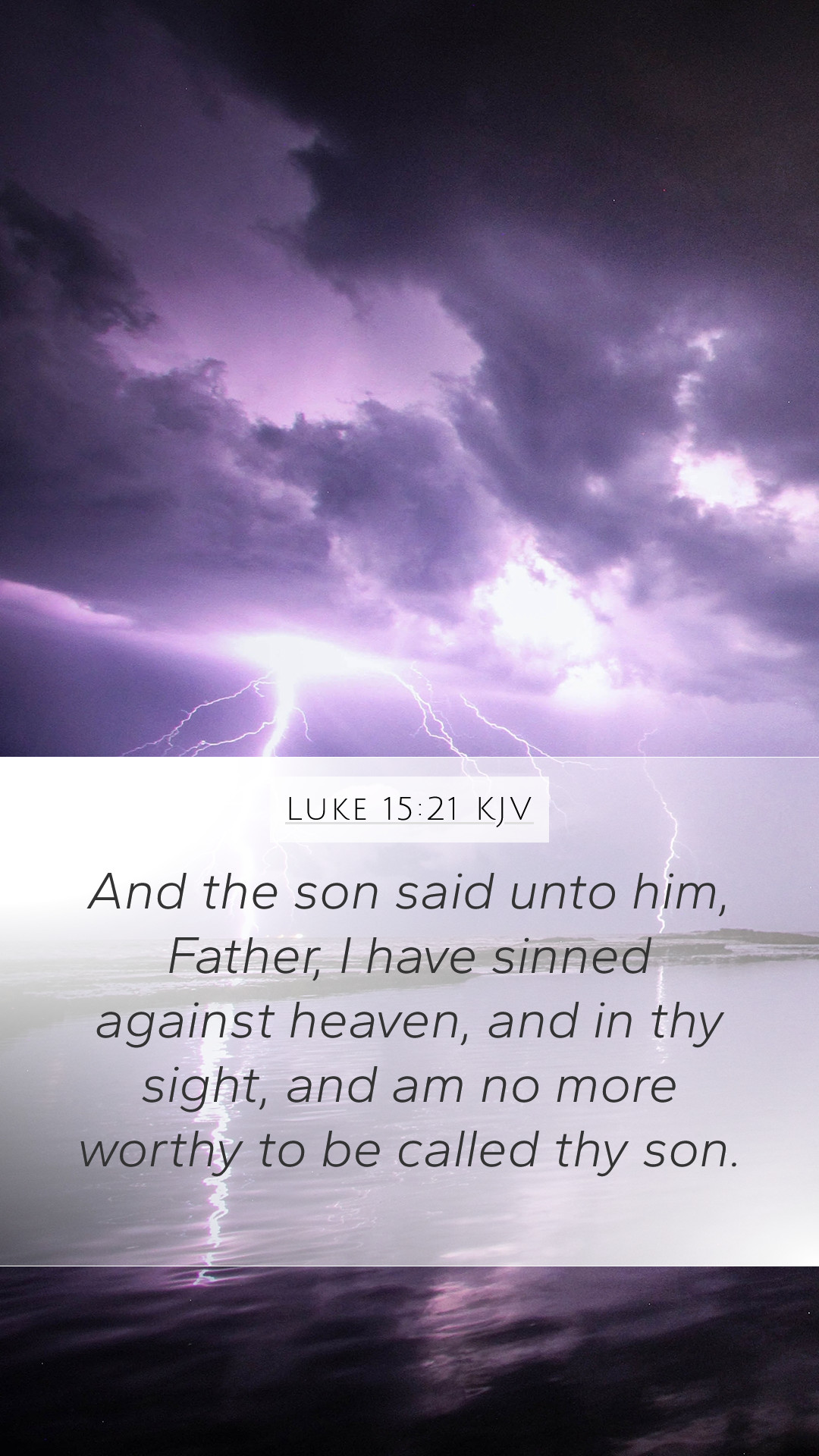Bible Verse Commentary on Luke 15:21
Verse: "And the son said to him, Father, I have sinned against heaven and before you. I am no longer worthy to be called your son."
Meaning and Interpretation
This verse is a critical moment in the Parable of the Prodigal Son, showcasing profound themes of repentance, humility, and the nature of forgiveness. The son acknowledges his sins, highlighting the importance of self-awareness and the realization of one's failures before God and others.
- Repentance: The son's confession signifies a turning point; true repentance involves an honest admission of wrongdoing. This is echoed in Matthew Henry's commentary, which emphasizes that true remorse is vital for reconciliation.
- Humility: Adam Clarke notes that the son’s willingness to return and confess his sins illustrates the essence of humility. He understands that he has lost his status and does not expect to regain it, which is crucial for restoring relationships.
- Forgiveness: Albert Barnes comments on the father’s reaction, which exemplifies unconditional love and forgiveness. The father’s readiness to embrace his son without hesitation foreshadows God's grace towards repentant sinners.
Scriptural Context
The context of this passage is essential for understanding its full meaning. Situated within the broader narrative of the parable, it reflects Jesus' teaching on the nature of God’s mercy. This parable aims to illustrate God’s boundless compassion for those who repent, a central theme in Scripture.
Key Insights from Commentaries
- Matthew Henry: He emphasizes the significance of the son's acknowledgment of his sins as a step towards redemption. The confession represents a heartfelt expression that God desires from those who stray.
- Albert Barnes: Barnes focuses on the sincerity of the son's words. He notes that the phrase "no longer worthy" shows the depth of the son's realization of his unworthiness and serves as a model for true contrition.
- Adam Clarke: Clarke highlights the theological implications of sin and forgiveness, explaining how this verse encapsulates the essence of the gospel message—repentance leads to restoration.
Theological Implications
This verse not only illustrates individual repentance but also serves to teach fundamental Christian doctrines regarding sin, grace, and redemption. The father’s unconditional love mirrors God’s love for humanity, reinforcing the message that no one is beyond redemption if they sincerely seek forgiveness.
Application of the Verse
- This verse encourages believers to reflect on their own lives and recognize areas where they may be straying from God.
- It acts as a reminder to approach God with humility and honesty in confession, seeking His grace for restoration.
- The unconditional love illustrated in this parable calls believers to extend forgiveness to others who have wronged them, fostering a spirit of reconciliation.
Cross References
- Psalm 51:3: A cry of repentance and acknowledgment of sin.
- Luke 15:7: Joy in heaven over one sinner who repents.
- 2 Corinthians 7:10: Godly sorrow leads to repentance.
Conclusion
Luke 15:21 encapsulates essential themes of Bible verse meanings and interpretations. Understanding this verse requires engaging with its narrative context and theological implications, allowing deeper insights into the nature of repentance, humility, and grace. For those exploring Bible study topics or seeking Bible study guides, the insights derived from this verse provide significant fodder for personal reflection and group discussions.


